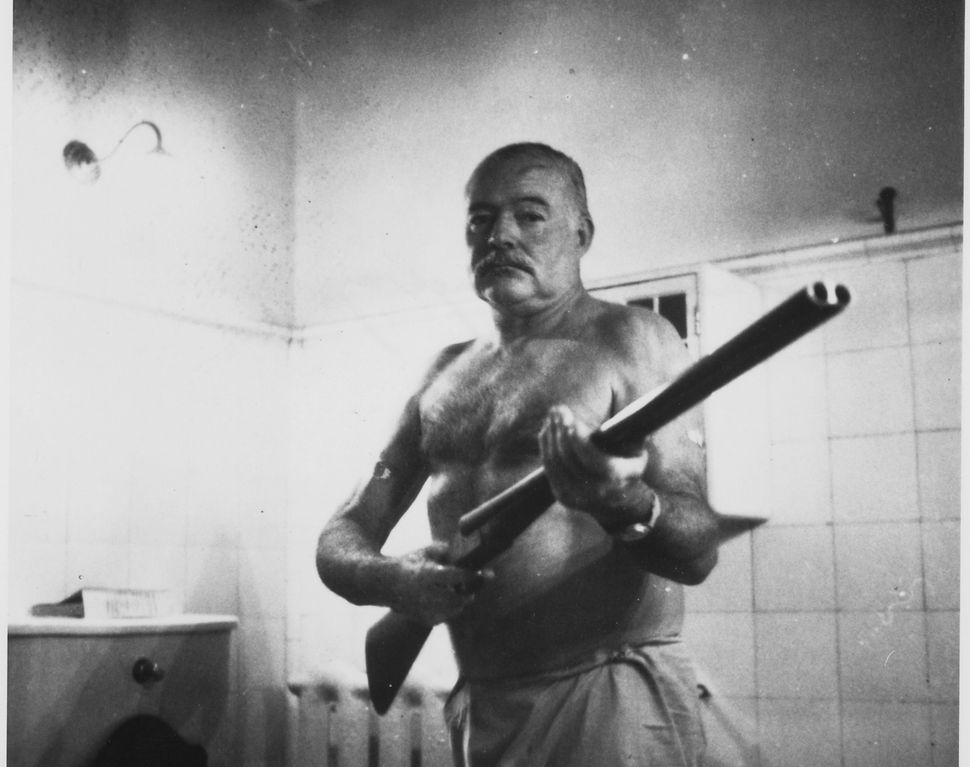If Hemingway hadn’t put that macho gloss on things, he’d have been revealed as an aesthete, something his upbringing didn’t let him admit, even to himself perhaps. He was at core sensitive, finely-tuned, and delicate, not attributes one associates with Ernest Expletive Deleted Hemingway. Therein lay his realm of suffering and self-destruction.
Read any of his short stories. You’ll see the soap-bubble delicacy of observation and the timid brevity of description, oblique dialogue, yet all somehow posed as strong and manly, if that old term can be allowed these days. There is a desperate discord to how he strives for maturity of tone.
Remember, Hemingway liked to be called Papa. He wanted to be a father figure. His own father was harsh, demanding, abusive, and committed suicide. A small town doctor with some rural practice, too. Hence Hem’s affinity for Chekov.
Hem defined courage as “Grace under pressure.” His mother’s name was Grace. Calling Sigmund Freud. Issues abound, yet for the most part he coped, managed to produce some world-class writing, and influenced, probably to good effect, maybe, generations of writers, who mostly misunderstand Hem’s concision for simplicity.
Hemingway cited Huck Finn by Mark Twain as the book on which modern literature pivoted. He was correct because it brought narrative out of ornate phrasing into how people talk. Vernacular discursive narrative has thrived since, with many excursions into abstract forms rooted in jargon and prepared audiences. Sherwood Anderson’s Winesburg, Ohio presented an early example of plain speech writing, too, and before that, Ambrose Bierce, particularly in his Civil War and Horror stories.
Probably the next innovation to affect nearly everyone is the unreliable narrator, usually presented to the reader seamlessly at first, only to unravel and show divots, chips, and flaws as the story expands. Naive, honest narrative turned into rube’s yawp, hick sincerity being instantly risible. Plain tales told plainly lost savor in favor of convoluted, twisted, layered meanings.
We’re stuck in that to this day, as writers seek new ways out of the buried box in which we find ourselves.
Read as much and as widely as possible, accepting what’s offered by the writing, bringing what’s experienced from your life, observation, and thought. Literature doesn’t mean fancy writing, it simply means written stories, and the ones written best speak most clearly and last longest.

///



